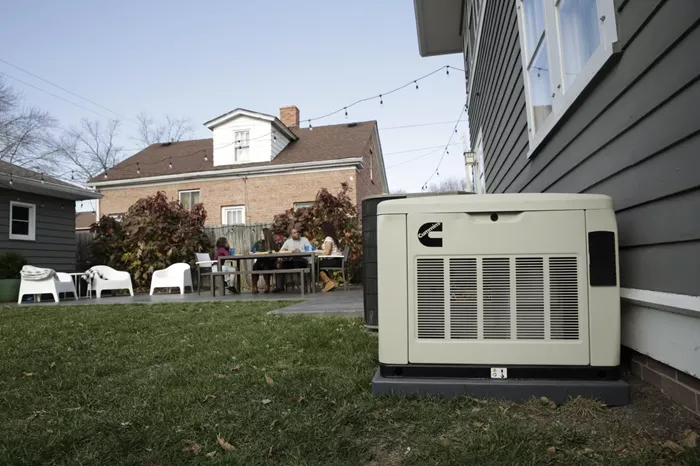When the power goes out, a reliable generator can keep your home appliances running smoothly. Choosing the best generator depends on your power needs, fuel type, and budget. This guide will help you understand the key factors to consider and recommend the best generators for home appliances.
Understanding Power Requirements for Home Appliances
Before buying a generator, you need to calculate how much power your essential appliances require. This is measured in watts (W) or kilowatts (kW).
How to Calculate Your Power Needs
Starting Watts (Surge Power) : Some appliances, like refrigerators and air conditioners, need extra power when they start.
Running Watts : The continuous power required to keep an appliance running.
Types of Generators for Home Use
Portable Generators
- Best for short-term power outages (a few hours to a couple of days).
- Runs on gasoline, propane, or diesel.
- Typically provides 3,000W to 10,000W.
Pros: Affordable, easy to move, good for emergencies.
Cons: Noisy, requires manual refueling, not ideal for long-term use.
Best for: Running essential appliances like fridge, lights, and fans.
Inverter Generators
- More fuel-efficient and quieter than traditional portable generators.
- Produces clean power (low THD <3%), safe for sensitive electronics like laptops and TVs.
Power range: 1,000W to 7,000W.
Pros: Lightweight, quiet, great for RVs and camping.
Cons: More expensive than standard portable generators.
Best for: Homes with sensitive electronics and where noise is a concern.
Standby Generators (Whole-House Generators)
- Automatically turns on during a power outage.
- Runs on natural gas or propane.
Power output: 7,000W to 20,000W+.
Pros: Hands-free operation, powers entire home, long-lasting.
Cons: Expensive, requires professional installation.
Best for: Large homes with high power demands (HVAC, well pumps, etc.).
Key Features to Look for in a Generator
Fuel Efficiency & Runtime
- Gasoline generators need frequent refueling (every 6-12 hours).
- Propane and diesel last longer but may be harder to store.
- Inverter generators adjust engine speed to save fuel.
Noise Level
Standard generators: 65-75 dB (loud, like a lawnmower).
Inverter generators: 50-60 dB (quieter, like a normal conversation).
Transfer Switch Compatibility
- A manual or automatic transfer switch prevents backfeeding, which can be dangerous to utility workers.
- Required for safely connecting a generator to your home’s electrical panel.
Outlets & Connectivity
- Look for 120V household outlets, 240V for large appliances, and USB ports for charging phones.
- RV-ready generators have TT-30R outlets.
Top 5 Best Generators for Home Appliances
Champion 7500-Watt Dual Fuel Generator
Power: 7,500W (gas) / 6,750W (propane)
Runtime: 8-10 hours (50% load)
Features: Electric start, dual fuel, CO detection
Best for: Emergency backup for mid-sized homes
Honda EU2200i Inverter Generator
Power: 2,200W (1,800W continuous)
Runtime: 8.1 hours (25% load)
Features: Super quiet (48 dB), ultra-lightweight
Best for: Small homes, camping, RVs
Generac GP15000E Portable Generator
Power: 15,000W (peak)
Runtime: 10 hours (50% load)
Features: Electric start, heavy-duty wheels
Best for: Large homes with high power needs
Westinghouse WGen9500DF Dual Fuel
Power: 9,500W (gas) / 8,500W (propane)
Runtime: 12 hours (50% load)
Features: Remote start, transfer switch ready
Best for: Reliable whole-house backup
Briggs & Stratton 40396 Standby Generator
Power: 20,000W (automatic)
Runtime: Unlimited (natural gas hookup)
Features: WiFi monitoring, self-testing
Best for: Permanent whole-house power backup
Safety Tips When Using a Generator
- Never run a generator indoors – Carbon monoxide poisoning is deadly. Keep it 20+ feet from the house.
- Use heavy-duty extension cords rated for outdoor use.
- Let the generator cool before refueling to prevent fires.
- Install a transfer switch to avoid backfeeding the grid.
Final Verdict: Which Generator is Best for You?
- Budget & Portability? → Portable Gas Generator (Champion 7500W)
- Quiet & Efficient? → Inverter Generator (Honda EU2200i)
- Whole-House Backup? → Standby Generator (Briggs & Stratton 40396)
Conclusion
By understanding your power needs and generator types, you can choose the best one to keep your home running during an outage. Always prioritize safety and proper installation for the best results. Would you like recommendations based on your specific appliances? Let us know in the comments!

